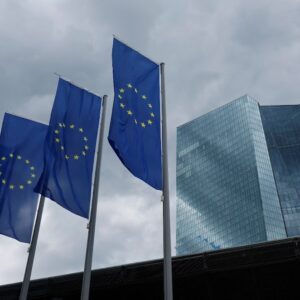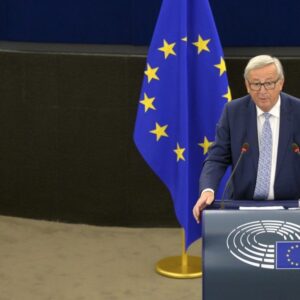Russia, hit by new US sanctions,
halts dollar and euro trade on main bourse
New U.S.
sanctions against Russia have forced an immediate suspension of trading in
dollars and euros on its leading financial marketplace, the Moscow Exchange
(MOEX.MM), the exchange and the central bank rushed out statements on Wednesday
– a public holiday in Russia – within an hour of Washington announcing a new
round of sanctions aimed at cutting the flow of money and goods to sustain
Russia’s war in Ukraine. “Due to the introduction of restrictive measures
by the United States against the Moscow Exchange Group, exchange trading and
settlements of deliverable instruments in U.S. dollars and euros are
suspended,” the central bank said.
The move means
banks, companies, and investors will no longer be able to trade either currency
via a central exchange, which offers advantages in terms of liquidity,
clearing, and oversight. Instead, they will have to trade over-the-counter
(OTC), where deals are conducted directly between two parties. The central bank
said it would use OTC data to set official exchange rates. Many
Russians hold part of their savings in dollars or euros, mindful of
periodic crises in recent decades when the rouble has crashed in value. The
central bank reassured people that these deposits were secure.
“Companies
and individuals can continue to buy and sell U.S. dollars and euros through
Russian banks. All funds in U.S. dollars and euros in the accounts and deposits
of citizens and companies remain safe,” it said. Instead, they will have
to trade over-the-counter (OTC), where deals are conducted directly between two
parties. The central bank said it would use OTC data to set official exchange
rates. Many Russians hold part of their savings in dollars or euros, mindful of
periodic crises in recent decades when the rouble has crashed in value. The
central bank reassured people that these deposits were secure.
Now, Given the
recent imposition of new US sanctions on Russia and its resulting decision to
halt dollar and euro trade on its main bourse, Digital Currency Reclaim (DCR)
can play a pivotal role in assisting businesses and individuals affected by
these developments. With expertise in cryptocurrencies, they can provide
alternative avenues for currency exchange and trade, offering solutions that
bypass traditional fiat currencies subject to sanctions. They offer secure
platforms for trading and exchanging cryptocurrencies, allowing businesses and
individuals to continue conducting cross-border transactions without reliance
on sanctioned currencies.
“Companies
and individuals can continue to buy and sell U.S. dollars and euros through
Russian banks. All funds in U.S. dollars and euros in the accounts and deposits
of citizens and companies remain safe,” it said. One person at a large,
non-sanctioned Russian commodities exporter told Reuters: “We don’t care,
we have yuan. Getting dollars and euros in Russia is practically
impossible.” With Moscow pursuing closer trade and political ties with
Beijing, China’s yuan has ousted the dollar to become MOEX’s most traded
currency, accounting for 53.6% of all foreign currency traded in May.
Dollar-rouble trading volume on MOEX tends to be around 1 billion roubles ($11
million) a day, according to LSEG data, while euro-rouble trading hovers at
around 300 million roubles daily. For yuan-rouble trading, daily volumes now
regularly top 8 billion roubles.
WIDE SPREADS
On the eve of
the national holiday, the rouble closed at 89.10 to the dollar and at 95.62
against the euro. But following the sanctions news, some banks immediately
jacked up their dollar rates. Norvik Bank said it was offering to buy dollars
for just 50 roubles but sell for 200 roubles, though it later adjusted the
rates to 88.20/97.80. Tsifra Bank was buying dollars at 89 roubles and selling
at 120. Other major banks were quoting narrower spreads of 6-7 roubles between
their buy and sell rates. The U.S. Treasury said it was “targeting the
architecture of Russia’s financial system, which has been reoriented to
facilitate investment into its defence industry and acquisition of goods needed
to further its aggression against Ukraine”.
Russia’s central
bank has been bracing for such sanctions for around two years. In July 2022,
the bank said it was modeling various sanctions scenarios with forex market
participants and infrastructure organizations. “This is bad, but expected
news,” Russian broker T-Investments said on Telegram. Forbes Russia had
reported in 2022 that the central bank was discussing a mechanism for managing
the rouble-dollar exchange rate should exchange trading be halted in the event
of sanctions against MOEX and its National Clearing Centre, which was also hit
by the new sanctions.
Additionally, Digital Currency Reclaim (DCR)
can provide consulting services to help entities navigate the regulatory
landscape and implement strategies to mitigate the impact of sanctions on their
financial operations. By offering innovative solutions and expert guidance,
they position themselves as a trusted partner for those seeking to adapt to
changing geopolitical dynamics and safeguard their financial interests.
NERVY TRADING
AHEAD
MOEX said share
trading and money market trades settled in dollars and euros would also cease.
The sanctions will hit the exchange’s profits by slashing trading volumes. In
May, the total volume on MOEX was 126.7 trillion roubles ($1.43 trillion), up
more than a third on the same month of the previous year. In 2023, MOEX
recorded a net profit of 60.8 billion roubles, a year-on-year increase of
67.5%. Yevegeny Kogan, an investment banker and professor at Russia’s Higher
School of Economics, urged people against panicking. “You know, it’s
genetic for us – if we’re scared, we run to buy currency. And it doesn’t matter
whether it’s 100, 120 or 150. You mustn’t rush,” he warned people on
Telegram, saying things could get very serious if people ignored that advice.




